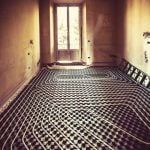If you’re a homeowner looking to make improvements to your property, you may be wondering, “Can I deduct home improvements from capital gains?” Understanding how capital gains and home improvements are related can help answer this question. Capital gains refer to the increase in the value of a property when it is sold or disposed of, while home improvements can have a significant impact on the property’s value.
Home improvements can affect capital gains in various ways. By enhancing the aesthetic appeal, functionality, or energy efficiency of a property, home improvements can increase its market value. This means that when you sell the property, the difference between the sale price and the original purchase price (adjusted for any qualifying improvements) will determine your capital gains. The relationship between these two factors is important to consider when determining whether or not you can deduct home improvements from capital gains.
When it comes to deducting home improvements from capital gains, there are specific criteria that must be met. Not all types of home improvements are eligible for deductions, and there may be limitations and restrictions based on factors such as timing and specific requirements.
It’s important to understand which home improvements can be deducted and to keep detailed records and documentation for tax purposes. Seeking professional advice from a tax professional or financial advisor can also provide valuable insight into maximizing deductions for home improvements while ensuring compliance with tax laws and regulations.
How Home Improvements Affect Capital Gains
Understanding the impact of home improvements on capital gains is crucial for homeowners looking to maximize their investment. Capital gains refer to the profit made from the sale of a property or an investment, and they are subject to taxation. Home improvements, on the other hand, can significantly increase the value of a property. When it comes to calculating capital gains, understanding how home improvements affect the overall value of a property is important.
Home improvements have a direct impact on the capital gains realized when a property is sold. This is because any increase in property value due to improvements will directly affect the amount of capital gains that will be subject to taxation. For example, major renovations such as kitchen upgrades, bathroom remodels, or adding additional living space can substantially increase the resale value of a home, which in turn can lead to higher capital gains.
It’s important for homeowners to be aware that minor repairs and maintenance typically do not have a significant impact on capital gains. However, major renovations and improvements can have a substantial effect on a property’s value and therefore its capital gains potential.
| Capital Gains Impact | Example Home Improvements |
|---|---|
| Substantial increase in property value | Kitchen remodel, bathroom addition |
| Minimal impact on property value | Replacing worn carpets, fixing leaky faucets |
What Home Improvements Can Be Deducted From Capital Gains
Are Eligible for Deduction
Not all home improvements qualify for this tax benefit, so it’s crucial for homeowners to be aware of the specific criteria. Generally, eligible home improvements must add value to the property and cannot be considered routine maintenance or repairs.
List of Eligible Home Improvements for Deduction
Can Be Deducted From Capital Gains
may include major renovations such as kitchen remodels, bathroom upgrades, adding a deck or porch, installing energy-efficient systems (such as solar panels or geothermal heat pumps), and landscaping enhancements. These types of improvements not only enhance the quality of life for homeowners but also contribute to an increase in property value, making them suitable for deductions from capital gains.
It’s important for homeowners to keep in mind that routine maintenance and repairs are generally not eligible for deduction. While these types of expenses are necessary for the upkeep of a property, they do not typically add substantial value to the home and therefore do not meet the criteria for deductions from capital gains.
This includes expenses such as painting, HVAC system repairs, plumbing fixes, and basic landscaping maintenance. Keeping detailed records and documentation about all home improvement projects is crucial when determining eligibility for deductions.
Limitations and Restrictions
When it comes to deducting home improvements from capital gains, there are certain limitations and restrictions that individuals need to be aware of. While home improvements can increase the value of a property, not all improvement expenses are eligible for deduction. It is important to understand these limitations in order to accurately calculate any potential deductions.
Some limitations on deductions for certain types of home improvements include:
- Repairs vs Improvements: The IRS makes a distinction between repairs and improvements. While repairs typically cannot be deducted from capital gains, certain home improvements that add value to the property can be eligible for deduction.
- Timing of Improvements: In some cases, there may be limitations on the timeframe for when a home improvement was made in relation to selling the property. For example, some improvements may only be eligible for deduction if they were made within a certain number of years before the sale of the property.
- Specific Requirements: Some deductions for home improvements may have specific requirements that need to be met in order to qualify. This could include meeting certain energy efficiency standards for the improvement or obtaining proper documentation.
Understanding these limitations and restrictions is crucial when considering deducting home improvements from capital gains. It is important for homeowners to carefully review their own circumstances and consult with a tax professional or financial advisor if they have any questions about eligibility for deductions.
Overall, being aware of these limitations can help individuals make informed decisions about which home improvements can potentially be deducted from their capital gains. By seeking professional advice and keeping detailed records, homeowners can navigate the complexities of tax implications related to home improvements effectively and maximize any potential benefits while avoiding any drawbacks.
The key takeaway is that while there are opportunities to deduct certain home improvements from capital gains, it’s essential to understand the specific criteria and seek professional guidance when determining eligibility for deductions based on individual circumstances.
Tax Implications
When it comes to home improvements and capital gains, there are important tax implications to consider. Understanding how home improvements can impact your capital gains and the potential tax benefits or drawbacks is essential for making informed decisions. Here are some key points to consider regarding the tax implications of deducting home improvements from capital gains:
- Overview of tax implications when deducting home improvements from capital gains:
- Deducting home improvements from capital gains can have a significant impact on the taxes you owe when selling your property. The cost of eligible home improvements can be deducted from the overall capital gains, reducing the amount of profit subject to capital gains tax.
- It’s important to keep in mind that not all home improvement expenses are eligible for deduction, so understanding which improvements qualify for deductions is crucial.
- Explanation of potential benefits and drawbacks:
- One of the key benefits of deducting home improvements from capital gains is that it can reduce the amount of taxable gain on the sale of your property, potentially resulting in lower taxes owed.
- On the other hand, there may be limitations on the amount of deductions allowed or restrictions based on specific requirements, so it’s important to carefully review the criteria for deductions.
- Importance of keeping detailed records and documentation for home improvements:
- To support any deductions claimed for home improvements, it is crucial to maintain accurate records and documentation. This includes invoices, receipts, contracts, and other relevant paperwork that demonstrate the cost and nature of the improvements made to the property.
Record-Keeping and Documentation
When it comes to deducting home improvements from capital gains, record-keeping and documentation play a crucial role. Keeping detailed records of all home improvement expenses is essential for ensuring that you can take advantage of any potential deductions when it comes time to sell your property. This section will provide an overview of the importance of record-keeping and offer tips for maintaining accurate documentation for tax purposes.
One of the key aspects of record-keeping for home improvements is documenting all expenses related to the project. This includes receipts for materials, labor costs, and any permits or fees associated with the improvement.
In addition, it’s important to keep a record of any before and after photos, as well as any relevant contracts or agreements with contractors or service providers. All of this documentation can be used to support your claims for deductions when calculating your capital gains.
In order to ensure that you are able to claim deductions for home improvements from your capital gains, it’s recommended to keep all relevant records and documentation for at least three years after filing your tax return. This timeframe allows for any potential audits or inquiries from the IRS regarding your deductions. By maintaining organized records and documentation, you can minimize the risk of potential issues with claiming deductions for home improvements when selling your property.
| Importance of Record-Keeping | Tips for Maintaining Documentation |
|---|---|
| Ensures eligibility for deductions | Store documents in a secure location |
| Supports claims during IRS inquiries | Create digital backups of paper records |
| Minimizes risk of issues with deductions | Maintain a detailed spreadsheet of expenses |
Seeking Professional Advice
When it comes to making decisions about tax deductions for home improvements and capital gains, seeking professional advice is essential. A qualified tax professional or financial advisor can provide valuable insights and guidance, helping homeowners navigate the complex rules and regulations surrounding these deductions.
Consulting With a Tax Professional
A tax professional can offer personalized advice based on an individual’s specific circumstances. They can assess the eligibility of certain home improvements for deduction and ensure that all relevant documentation is in order. Additionally, they can provide clarity on any limitations or restrictions that may apply to certain types of home improvements.
Benefits of Seeking Professional Advice
By consulting with a tax professional or financial advisor, homeowners can gain a better understanding of the potential tax implications of deducting home improvements from capital gains. These professionals can also offer strategies for maximizing deductions within legal boundaries and help individuals avoid potential pitfalls when it comes to claiming these deductions.
Ensuring Compliance With Regulations
Given the complexity of tax laws and regulations, seeking professional advice helps ensure that homeowners remain in compliance with IRS guidelines. This proactive approach not only minimizes the risk of audits or penalties but also provides peace of mind knowing that the deductions claimed are legitimate and supported by accurate record-keeping.
Overall, seeking professional advice is crucial when considering deductions for home improvements from capital gains. With expert guidance, homeowners can make informed decisions that align with their financial goals while remaining compliant with tax laws. Whether it’s identifying eligible deductions, navigating restrictions, or understanding tax implications, consulting with a knowledgeable professional can provide valuable support throughout the deduction process.
Conclusion
In conclusion, when it comes to the question “Can I deduct home improvements from capital gains,” the answer depends on a variety of factors. Understanding the relationship between capital gains and home improvements is crucial for homeowners looking to make deductions on their taxes. While making home improvements can increase the value of a property and potentially lead to higher capital gains, not all improvement expenses can be deducted.
It is important for homeowners to carefully consider which home improvements can be deducted from capital gains and to keep detailed records and documentation of these expenses. Consulting with a tax professional or financial advisor can provide valuable guidance in navigating the complexities of tax deductions related to home improvements, especially considering limitations and restrictions that may apply.
Ultimately, the decision to deduct home improvements from capital gains should be made after thorough consideration of individual circumstances and in consultation with professional advice. Homeowners should be aware of potential benefits and drawbacks when seeking deductions for home improvements, as well as the criteria for eligibility, in order to make well-informed decisions about their tax responsibilities.

I’m thrilled to have you here as a part of the Remodeling Top community. This is where my journey as an architect and remodeling enthusiast intersects with your passion for transforming houses into dream homes.





